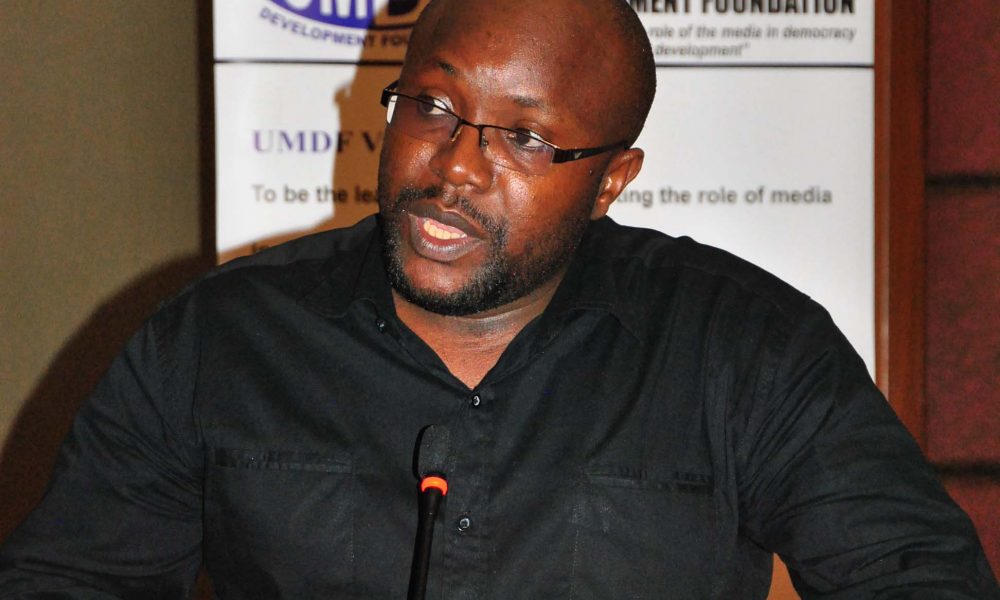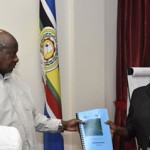By Don Wanyama
The main hall on the ground floor of the Intercontinental Hotel in Nairobi is filled to the brim. It is the afternoon of Friday August 26, 2016 and Nairobi, which is playing host to the Tokyo International Conference on African Development (TICAD), is a hive of activity.
Earlier in the day, at the Kenyatta International Conference Centre, President Yoweri Museveni had given a brief lecture on governance, explaining that it could not be divorced from development. He then listed 10 key bottlenecks to Africa’s development although he only explained three—promising to delve into detail in the afternoon where he was to address a bigger meeting comprising other African heads of state.
It is that promise that partly explained the mammoth attendance at the afternoon session at the Intercontinental with most looking forward to the full discussion on bottlenecks to Africa’s development. And indeed, President Museveni did not disappoint. After introductory remarks by host President Uhuru Kenyatta and an African Peer Review Mechanism status report on Mozambique by President Filipe Jacinto Nyusi, it was President Museveni’s turn to take to the floor.
What had seemed to be a dull afternoon soon kicked into life. With anecdotal evidence, historical insights, meticulous grasp of figures, reference to African proverbs and Biblical quotes, all told in a humorous yet serious tone, President Museveni expanded the earlier discussion on bottlenecks to African developments.
“These bottlenecks,” he told his attentive audience, “have been arrived at after 50 years of studying the African political-economic scene.” He then took the audience through the bottlenecks, in a lecture style, peppering it with figures from the continent—explaining why it was wrong for donors to pay little attention to Africa’s infrastructure development, giving them credit on talking and supporting human resource development and pointing out the futility of seeking power minus a solid ideological grounding especially for the armed forces.
When it came to integration and why Africa’s 53 “small markets” must unite, one could see that President Museveni was talking in what poet Gabriel Okara calls “from the heart and not teeth”. The passion was tangible.
“How do you support production if you don’t have a big enough market to buy what you produce?” Museveni asked his audience. “Colonialists fragmented Africa into 53 small markets and if Africa does not solve this problem, how will they attract investments?”
He made a contrast with China—which began opening up its economy in 1978, about the same time several African states did likewise. “Since then till today, China has attracted US$2.6 trillion in terms of foreign direct investments, while Africa as a continent has only attracted US$650 billion.”
Two weeks later, in Dar es Salaam, the Tanzanian capital, speaking at the East African Community heads of state summit on the same subject, President Museveni actually termed integration as a “matter of life and death” to Africa.
But back to Nairobi. After President Museveni’s presentation, the audience could not stop cheering. He had told Africa’s problems and proposed solutions in a candid and straight-forward manner. Heads of state present took turns to commend him—from Liberia’s Ellen Johnson Sirleaf to Senegal’s Macky Sall.
When it was the turn of South Africa’s Jacob Zuma to speak, he moved that the meeting adopts the presentation as an official document to be expanded and used as blue-print for the continent. When the meeting’s chairperson, His Excellency Uhuru Kenyatta, put the matter to vote, it was unanimously adopted. The APRM secretariat under Prof Eddy Maloka will now study President’s Museveni’s paper and come up with a broader document that will be presented at the next meeting.
If Nairobi could not have enough of Museveni, one needs to have been in Tanzania two weeks later at the EAC heads of state summit that I hinted on above. At the packed Main Conference Hall of the Dar es Salaam State House, host President John Pombe Magufuli, who had made the key address invited President Museveni to “greet” the audience. It had been a long day, with the heads of state held up for over six hours in a closed session—mainly discussing the proposed Economic Partnership Agreements between EAC and the European Union.
In less than five minutes, President Museveni again left what was an earlier haggard audience wowed. He was on the subject of integration. From a humorous narration of “demand” in Economics as taught to him at high school “as the desire backed by the ability to pay”, he explained how Africa’s previous “desire but challenged by inability to pay” was gradually turning around. He was back to figures—East Africa with the entry of South Sudan was now 165-million people strong, up from 40 million in 1960s. If there was need for evidence on how Africa’s “ability to pay” was improving, he shared the milk consumption figures of Uganda.
“In 1986,” President Museveni told the audience, “We drank 18 litres of milk per person per year in Uganda. Today, we drink 60 litres per person although we fall below the World Health Organisation’s recommended 210 litres reason some Ugandans still lose teeth because they don’t have enough calcium.” The audience broke into laughter but the point had been made.
I had the privilege of being part of President Museveni’s entourage in Angola in June at the International Conference on the Great Lakes Region (ICGLR) and also the Inter-Governmental Authority on Development (IGAD) in early August in Addis Ababa, Ethiopia. One this is clear; President Museveni is an authoritative figure in the continent. It looks up to him for guidance—for example in Angola where the Central Africa Republic was grappling with the issue of the marauding Lord’s Resistance Army rebels or in Addis where the South Sudan crisis was the centre discussion.
Ugandans should be happy with their President’s performance at the continental level. Africa cannot just have enough of Museveni.
A quick one. This week, four heads of IGAD states will meet in Mogadishu, Somalia. It is the first time in over 20 years that IGAD returns to Somalia. A decade ago, no one would dream of such a happening. President Museveni, the UPDF and Uganda have the right to claim credit for this new development. The normalcy we see returning to Somalia in large part is due to Uganda’s bold decision to send troops to what was a “forgotten country” about a decade ago. Another reason for Ugandans to be proud of their President!
The writer is the Senior Press Secretary/Spokesperson to the President.
Twitter: @nyamadon






